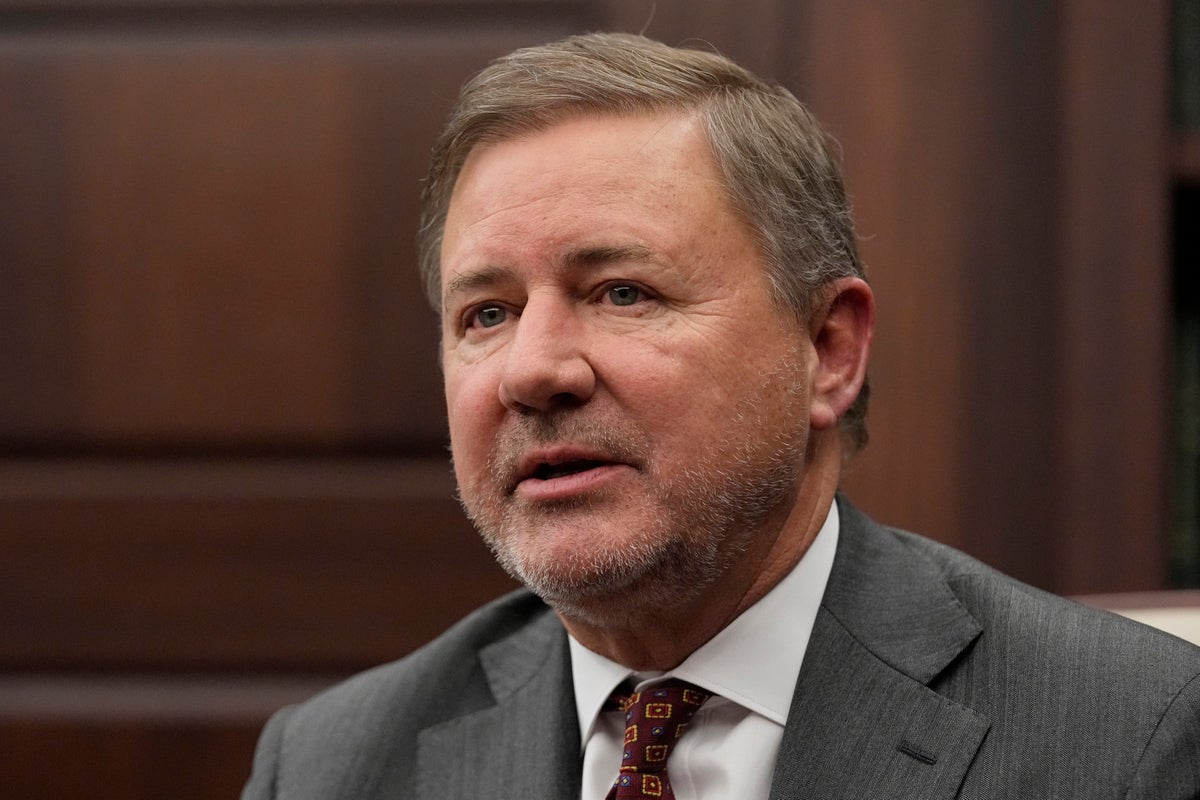
An Oklahoma school board has approved the creation of a publicly funded online Catholic school, teeing up a constitutional legal battle over whether taxpayers should foot the bill for religious schools.
The nation’s first-ever religious charter school was approved by the Oklahoma Statewide Virtual Charter School Board on 5 June, authorising the St Isidore of Seville Catholic Virtual School to be run by the Roman Catholic Archdiocese of Oklahoma City and the Diocese of Tulsa – and supported by taxpayer dollars.
Republican Governor Kevin Stitt, who has presided over a sweeping agenda against abortion access and transgender healthcare in Oklahoma, called the vote “a win for religious liberty and education freedom in our great state.”
“Oklahomans support religious liberty for all and support an increasingly innovative educational system that expands choice,” he said in a statement. “Today, with the nation watching, our state showed that we will not stand for religious discrimination.”
Americans United for Separation of Church and State, which led opposition in a recent US Supreme Court case involving whether a high school football coach can effectively force his student athletes to pray with him on the field, is preparing to take legal action.
“It’s hard to think of a clearer violation of the religious freedom of Oklahoma taxpayers and public-school families than the state establishing the nation’s first religious public charter school,” president and CEO Rachel Laser said in a statement.
“This is a sea change for American democracy,” she added.
The group and other civil rights organisations are expected “to take all possible legal action to fight this decision and defend the separation of church and state that’s promised in both the Oklahoma and US Constitutions,” Ms Laser said.
Oklahoma Attorney General Gentner Drummond also warned the board a vote to support a publicly funded religious school would clearly violate the state’s Constitution and expose the state to costly litigation.
“The approval of any publicly funded religious school is contrary to Oklahoma law and not in the best interest of taxpayers,” he said in a statement. “It’s extremely disappointing that board members violated their oath in order to fund religious schools with our tax dollars. In doing so, these members have exposed themselves and the state to potential legal action that could be costly.”
The move from the Republican-appointed board on 5 June comes as GOP officials and right-wing institutions across the country push for taxpayer dollars to support religious schools, with a Supreme Court signalling a willingness to direct public funds towards such schools despite explicit First Amendment protections.
“State and federal law are clear: Charter schools are public schools that must be secular and open to all students,” Ms Laser added. “In a country built on the principle of separation of church and state, public schools must never be allowed to become Sunday schools.”
Rev Paul Brandeis Raushenbush, CEO of Interfaith Alliance, which has fought against attempts to allow public funds to support religious schools, said in a statement shared with The Independent that Oklahoma’s rule will “open the floodgates for taxpayer-funded discrimination.”
“Taxpayer money should never be used to fund religious instruction and it is now up to the state to at least ensure St Isidore abides by the federal nondiscrimination protections guaranteed in public schools,” he added.
Last year, the nation’s highest court ruled that the state of Maine cannot exclude private Christian schools from a taxpayer-funded school voucher programme that helps students attend private schools.
The 6-3 decision from the court’s conservative majority in the case of Carson v Makin is expected to have broader implications over whether the government is obligated to support religious institutions on the same level as private ones.
In her dissent, Justice Sonia Sotomayor wrote that the Supreme Court “continues to dismantle the wall of separation between church and state that the Framers fought to build.”
“The consequences of the Court’s rapid transformation of the Religion Clauses must not be understated,” she wrote, issuing a warning that the court is undermining core First Amendment protections that prevent the government from imposing religious views.







